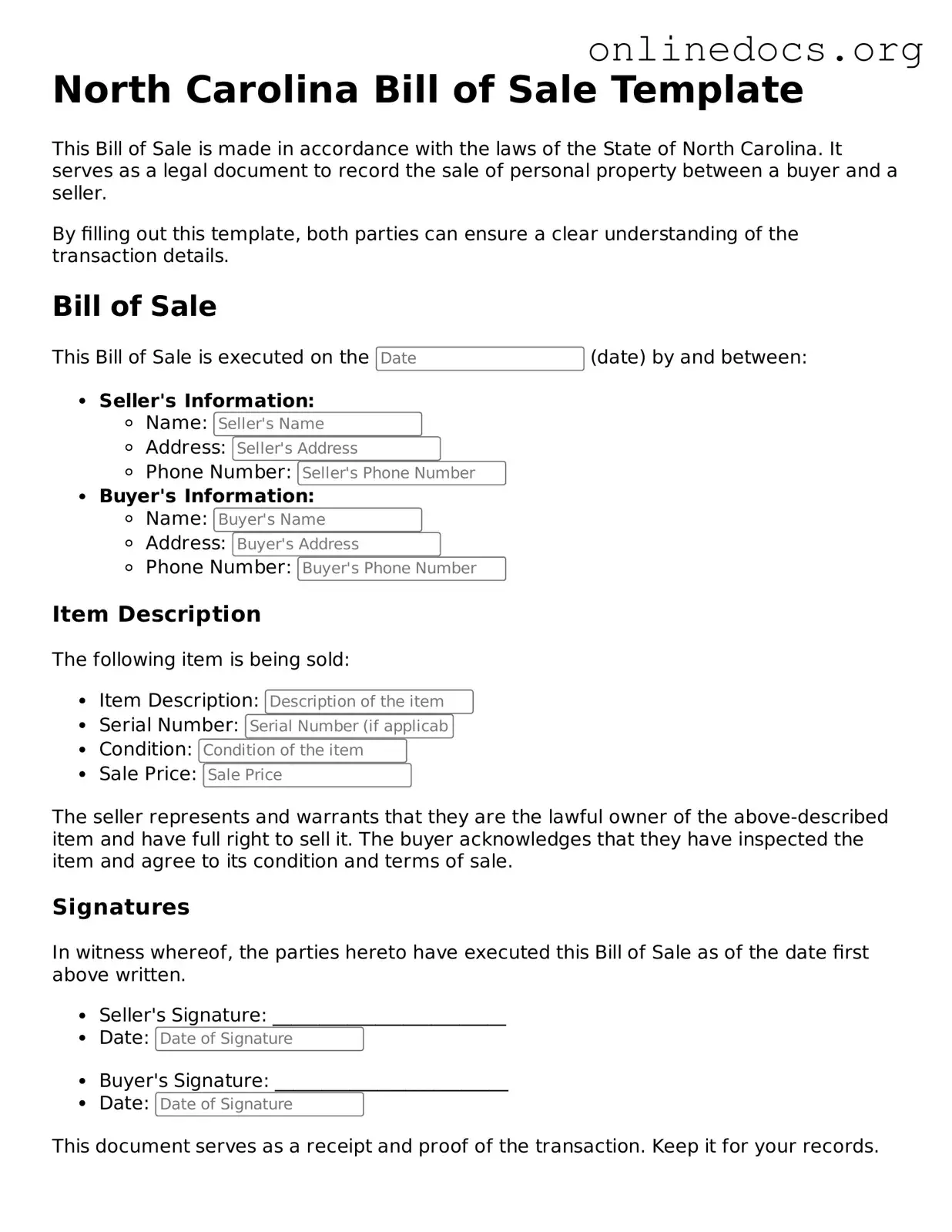The North Carolina Bill of Sale form shares similarities with the Vehicle Bill of Sale. Both documents serve to transfer ownership of a specific item from one party to another. The Vehicle Bill of Sale includes details such as the vehicle identification number (VIN), make, model, and year of the vehicle, along with the buyer and seller's information. This document is essential for registering the vehicle with the Department of Motor Vehicles and can also serve as proof of purchase for the buyer.
For those managing their transactions with precision, utilizing a All-Purpose Bill of Sale can streamline various ownership transfers, whether it involves vehicles, equipment, or personal items. This versatile document effectively protects the rights and interests of both buyers and sellers by providing a comprehensive record of the agreement, thus minimizing the potential for disputes.
Another document akin to the North Carolina Bill of Sale is the Personal Property Bill of Sale. This form is used for the sale of personal items, such as furniture, electronics, or collectibles. It outlines the description of the item being sold, the purchase price, and the names and addresses of both the buyer and seller. Similar to the Bill of Sale, it provides a legal record of the transaction and can help resolve disputes regarding ownership in the future.
The Equipment Bill of Sale is also comparable to the North Carolina Bill of Sale. This document is specifically designed for the sale of equipment, whether it be construction machinery, agricultural tools, or office equipment. It details the equipment's condition, serial number, and other relevant specifications. Like the general Bill of Sale, it protects both parties by documenting the sale and ensuring that ownership is officially transferred.
A Real Estate Bill of Sale is another document that bears resemblance to the North Carolina Bill of Sale. This form is used in transactions involving personal property that is included in a real estate sale, such as appliances or fixtures. It specifies what items are part of the sale, ensuring clarity for both the buyer and seller. This document can be important in real estate transactions to avoid misunderstandings about what is included in the sale.
The Boat Bill of Sale is similar as well, specifically for the transfer of ownership of boats and watercraft. This document includes information about the boat, such as its registration number, hull identification number, and any equipment included in the sale. Just like the North Carolina Bill of Sale, it serves as proof of ownership and is often required for registration with state authorities.
A Livestock Bill of Sale is another related document, utilized for the sale of farm animals. It includes details about the animals being sold, such as breed, age, and health status. This document ensures that both the buyer and seller have a clear understanding of the transaction and can serve as a record for future reference, similar to the general Bill of Sale.
The Gun Bill of Sale is also comparable, particularly in the context of firearms transactions. This document includes information about the firearm, such as make, model, and serial number, along with the buyer and seller's details. It serves as a legal record of the transfer of ownership and is often required to comply with state and federal regulations, much like the North Carolina Bill of Sale.
Lastly, the Business Bill of Sale is another document that shares similarities with the North Carolina Bill of Sale. This form is used when selling a business or its assets, detailing the items included in the sale, such as equipment, inventory, and customer lists. It provides a comprehensive record of the transaction and helps protect both parties by clearly outlining what is being transferred, similar to the general Bill of Sale.
